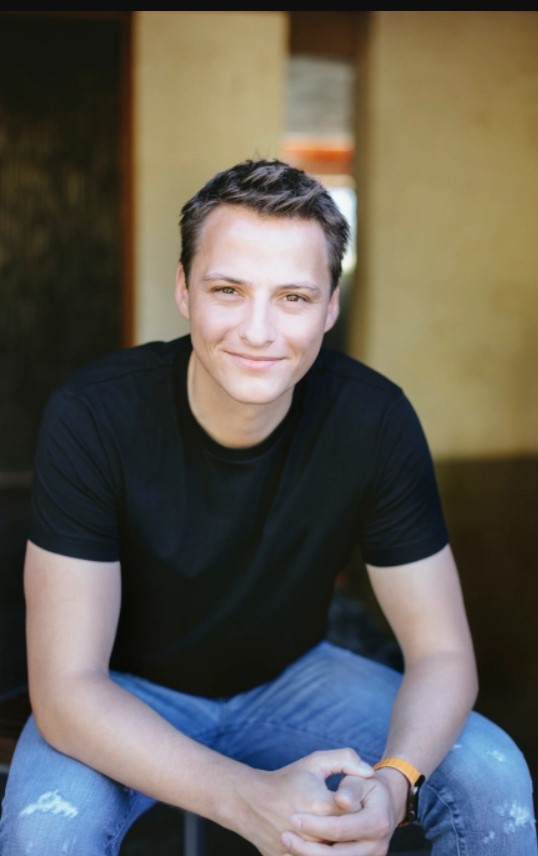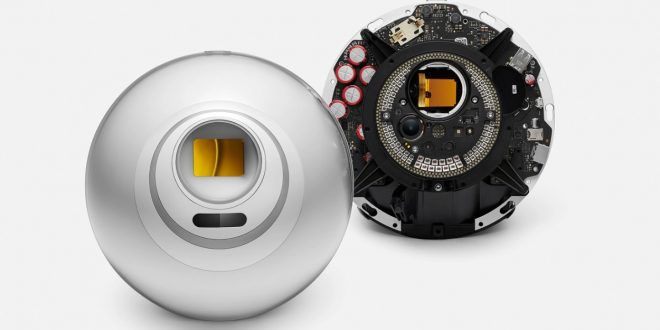Fake online identities are common. The ability to easily create them has been a boon for social media platforms—more “users”—and a scourge, as they spread conspiracy theories, distorted discourse, and other social ills.
ChatGPT shows that Twitter bots are nothing compared to what’s coming. In a few years, it will be impossible to tell if someone is talking to a human or a neural network.
Sam Altman knows. Altman, ChatGPT parent and OpenAI’s cofounder and CEO, has long seen what’s coming. He created a company more than three years ago to prove his personhood. Worldcoin’s three-part mission—to create a global ID, a global currency, and an app that allows payment, purchases, and transfers using its token and other digital assets as well as traditional currencies—is ambitious and technically complicated, but the opportunity is huge.
The San Francisco and Berlin-based company is still in beta, so users must download its app and have their iris scanned using a silver, watermelon-sized orb with a custom optical system.After the scan, Worldcoin adds the person to a verified human database and creates a unique cryptographic “hash” or equation. The scan isn’t saved, but the hash can be used to prove the person’s identity anonymously using the app’s private key and shareable public key. If a person wants to accept a payment or fund a project, the app generates a “zero-knowledge proof”—a mathematical equation—to verify that they are a unique individual. Technology may even help people vote on AI governance. (IEEE Spectrum explains Worldcoin’s technology better.)
Andreessen Horowitz, Variant, Khosla Ventures, Coinbase, and Tiger Global all invested $125.5 million in the company almost immediately. The public is warier. In June 2021, Bloomberg reported that Altman was working on Worldcoin. Many questioned its promise to give one share of its new digital currency to everyone who agreed to an iris scan. Worldcoin needed to be decentralized from the start to deliver currency drops for universal basic income programs. (Altman has long predicted that AI will generate enough wealth to pay every adult something each year.) Worldcoin needed crypto. However, some called it another crypto scam, while others doubted a new startup collecting biometric data could protect participants’ privacy.
Altman later said a “leak” caused the press attention, and Worldcoin wasn’t ready to tell its story until 2021. Reorganized under Tools for Humanity, a research lab and product company, the outfit is sharing more details. They may not be enough to win over users, but more people understand why proving personhood online will soon be necessary.
Everywhere at once
Advertising, Editorial, and Lifestyle Portrait Photographer Marc Olivier Le Blanc, Los Angeles and San Francisco.
In 2019, Altman began interviewing people to lead a new organization he was imagining while leaving Y Combinator to become OpenAI’s CEO. Max Novendstern, the first founder Altman hired, was a former investment associate at Bridgewater Associates and worked for Wave, a money transfer startup. Alex Blania, the second founder, studied theoretical physics at Caltech and the Max Planck Society.

Novendstern started another startup in early 2021. Worldcoin CEO Blania stayed.
Novendstern is “just incredible zero-to-one, very creative,” but “not as operational as the company needs to be,” Blania told me recently of his departure. Altman says he’s not “day-to-day involved” but thinks “super highly” of Blania’s 120-person team, which aims to create the “largest financial and identity system globally and make it fully privacy-preserving and inclusive,” according to Blania.
It’s difficult. The company claims 1.2 million users, but it needs more than a billion, including crypto-skeptics and biometric skeptics, to be effective.
Worldcoin board member Altman knows it’s tough. At an evening event I hosted in January, he said that AI is increasing the “need for systems that provide proof of personhood and the need for new experiments with wealth redistribution and global governance of systems,” but he called Worldcoin an “experiment” that he is “very glad” is running.
Altman also admitted that Worldcoin privacy concerns may be insurmountable that evening. “To me personally, the amount of privacy you give up to use Facebook or something versus the amount you give up for a scan of your retina and nothing else, I’d much rather have the latter,” he said. That’s fine—many won’t want that. However, more experiments on how technology can solve problems in this new world are welcome.
Blania, who has more at stake than Altman, seems determined to execute Worldcoin’s early vision, and one of the biggest challenges is getting enough people in front of the “orbs” that are central to the company’s approach.
Blania says the orbs are “everywhere from universities in Kenya to shopping malls in Lisbon,” but penetration is low. It takes 60 seconds to capture a high-definition iris scan.
Blania says Worldcoin plans to solve this by offering coupons, “access to certain loans,” or single-player games to Lisbon residents where “less than 5%” have had their irises scanned.
Blania predicts that internet change will drive adoption. “It’s a very long road that we have to walk down, and yeah, it’ll take a while,” he says. “But even a year from now, it’s not just going to be ‘people’ on Twitter offering scammy crypto giveaways” that are obvious bots.” Instead, imagine you spend 10 hours a day on the internet, and after you close your laptop, you have no idea if maybe you talked for five hours to neural networks of different forms and shapes and wasted your time. It’ll be awful.”
Worldcoin is also pursuing an enterprise strategy that may be its best bet for growth. A company spokesperson says Worldcoin is about to launch an SDK so developers can program to its API and incorporate its tech into their apps or platforms to verify users are humans and ensure a user can only perform an action once.
Gate visitor
If all goes well, WorldCoin applications could grow. “This is super interesting tech, but I think you don’t understand what a big deal it actually is,” Andreessen Horowitz’s Chris Dixon told Blania.
Critics still doubt the company’s goals and technology. Blania doesn’t know how people will use their Worldcoin currency. “Due to regulatory considerations, the token is not intended to be available in the U.S.,” he says.
Blania says that critics of Worldcoin are more interested in its cryptocurrency than in how its products work together to prove that each person is unique and let them send and receive money.
Since biometric authentication is a one-time process, there is no ongoing link between users and their World IDs. Blania says “no system is perfect” and “it will never be possible to completely prevent this,” but “we expect impersonation to become very difficult” when asked if Worldcoin keys can be sold or disposed of.
Blania expects WorldCoin’s competitors to fade away over time.
Worldcoin’s orbs are “a little bit out there,” but because the online world is changing so quickly, they give the company an advantage over platforms that try to solve the same problem online. “Blania”: “I fundamentally believe they’ll just get ripped apart by the next generation of [large language] models [like ChatGPT] that are going to come out over the next 12 to 24 months, because neither digital content nor intelligence will be good enough to discriminate [who is or isn’t human]. He adds, “You need a physical connection.” “Everything else breaks.”
 Tech Gadget Central Latest Tech News and Reviews
Tech Gadget Central Latest Tech News and Reviews




